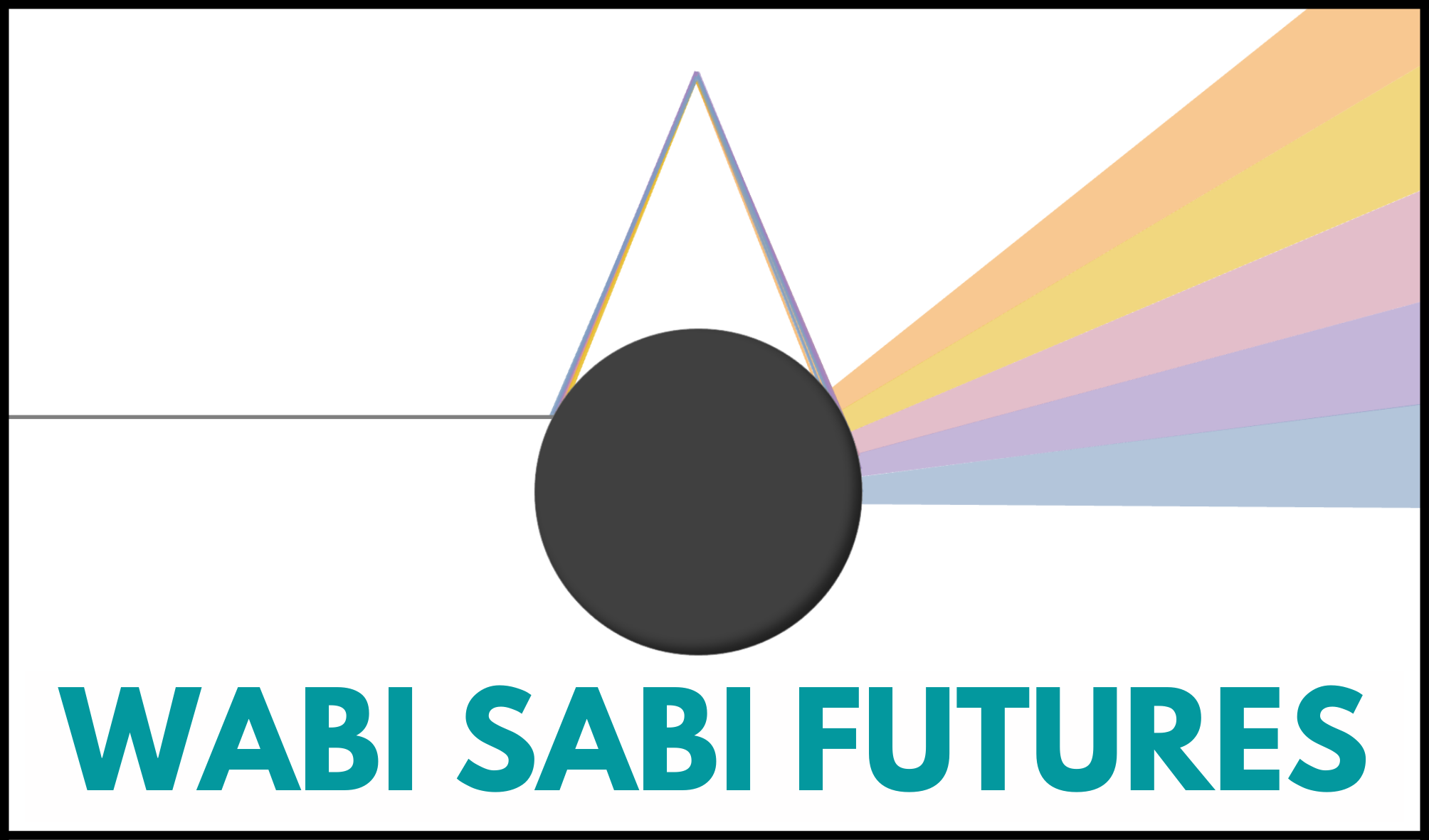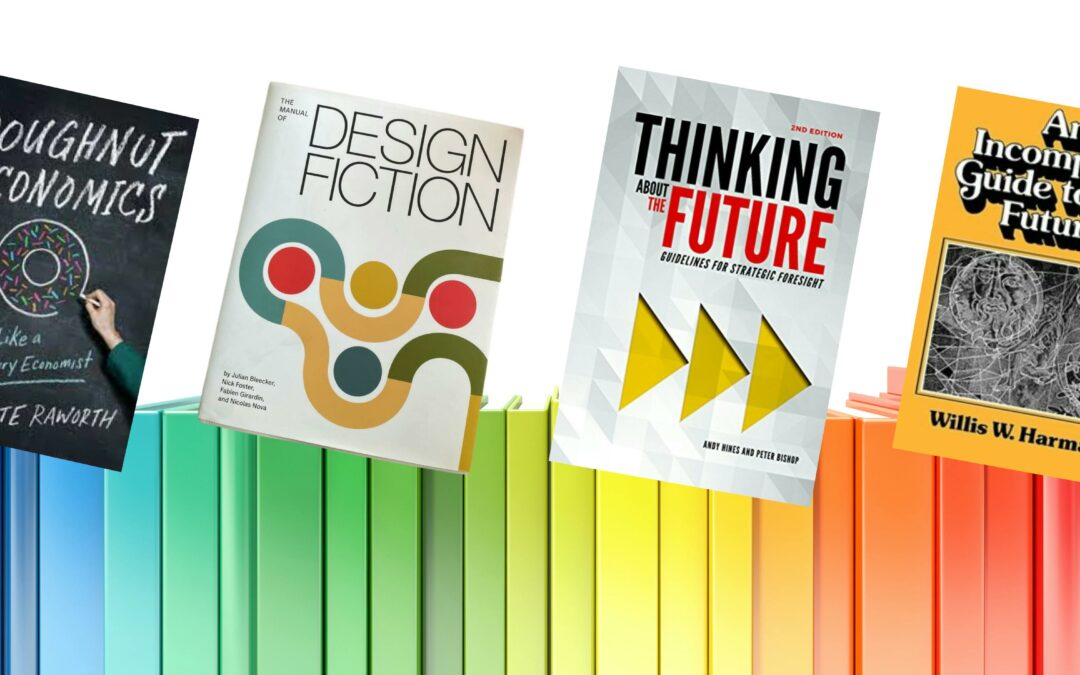Doughnut Economics is the Futures Book Club featured read for October!
|
Doughnut Economics: 7 Ways to Think Like a 21st Century Economist – by Kate Raworth |
In Doughnut Economics, Oxford academic Kate Raworth identifies the seven critical ways in which mainstream economics has led us astray – from selling us the myth of ‘rational economic man’ to obsessing over growth at all costs – and offers instead an alternative roadmap for bringing humanity into a sweet spot that meets the needs of all within the means of the planet. Ambitious, radical and provocative, she offers a new cutting-edge economic model fit for the challenges of the 21st century.
There is so much passion and energy surrounding this book, and it is a warmly welcomed addition to the Club’s collection of books that prompt us to envision how the world could be made differently.
New reads stick around a while. This book will be discussed in November, January & February.
There’s still time to get involved with recently featured books
|
|
The Manual of Design Fiction by Julian Bleecker, Nick Foster, Fabien Girardin & Nicolas Nova
The definitive book on design fiction from the originators of the practice, providing a compelling mindset and toolkit for any person or organization grappling with the future and its implications.
Upcoming discussions: October, early November, late November
|
|
|
Thinking About the Future by Andy Hines & Peter Bishop
Thinking about the Future distills the expertise of three dozen senior foresight professionals into a set of essential guidelines for carrying out successful strategic foresight. Presented in a highly scannable yet personable style, each guideline includes an explanation and rationale, key steps, a case example, and resources for further study.
Upcoming discussions: October and November
|
|
|
An Incomplete Guide to the Future by Willis Harman
The industrialised world is undergoing a metamorphosis to a transindustrial society, of which the essential characteristics can already be discerned. We may be the first society in history to be able to identify such a fundamental transformation while it is yet in process – and so to act to reduce the social disruption that accompanies it… We are in the early stages, [Harman] believes, of a change much more far-reaching than the Industrial Revolution. It is a metamorphosis that will transform every institution, every profession, every aspect of modern society.
Upcoming discussions: October
|
You’re welcome to read along on your own, but if you’d like to:
- Be part of the discussions
- Swap notes with other readers
- Access our full recommended reads list
- Meet other futures-curious folk
then you might like to join us!
Membership is super accessible – it costs less than a cup of coffee per month, and if you join today then your fees will be fixed at this low price for the duration of your membership (/shakes fist at inflation).
|
|
I hope to see you in the Reading Room!
Amanda
|
Not interested in the Futures Book Club? No worries! Click the button below to stop receiving these updates.

